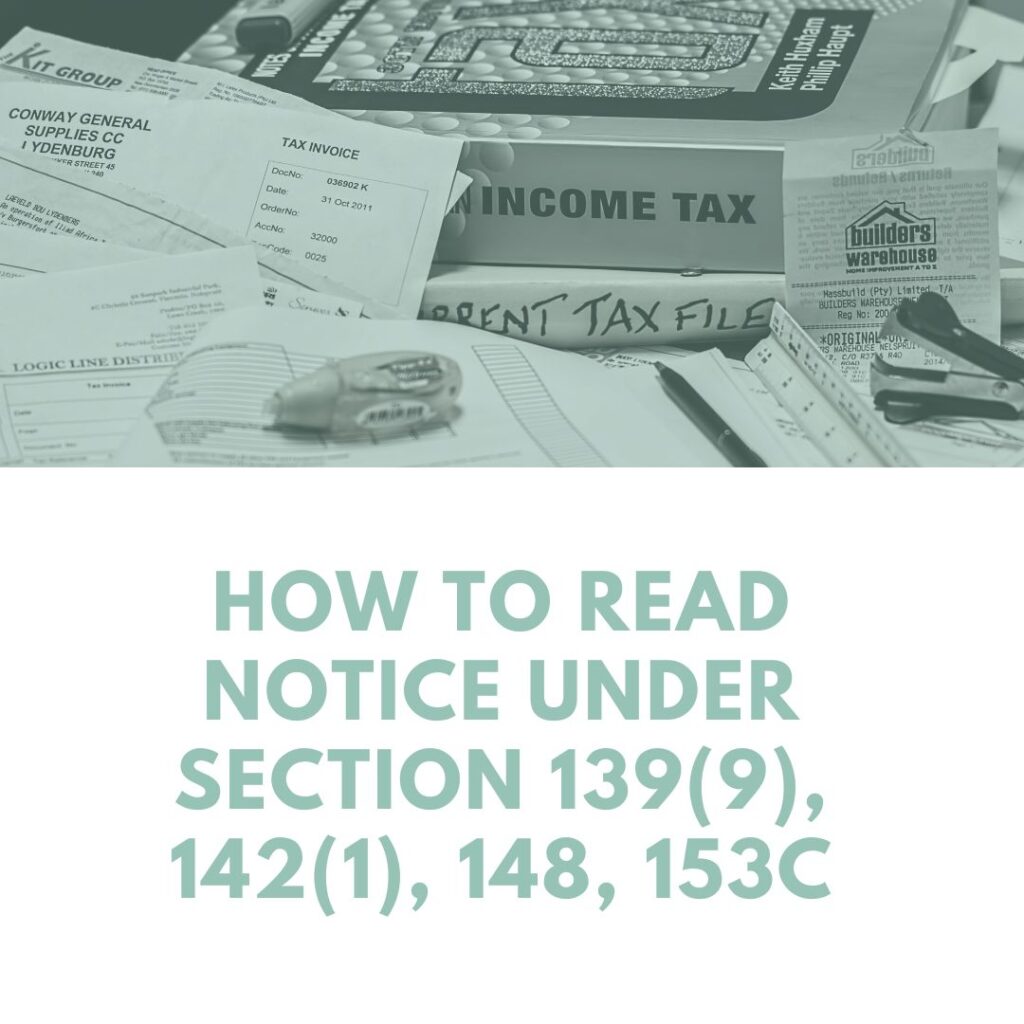1. Notice under Section 139(9):
Purpose:
- Section 139(9) empowers the Assessing Officer (AO) to issue a notice when there is an error apparent on the face of the record in an income tax return filed by the taxpayer.
Example:
- If there is a calculation mistake or omission of income in the filed return, the AO can issue a notice under Section 139(9) to rectify the error.
Important Case Law:
- Case: CIT vs. Himalayan Cooperative Group Housing Society Ltd. (2017)
- Significance: The court held that the AO has the power to rectify errors in the return under Section 139(9) if the errors are apparent on the face of the record.
Benefits of Home Loans in India
2. Notice under Section 142(1):
Purpose:
- Section 142(1) allows the AO to issue a notice to a taxpayer requiring them to furnish details, documents, and information for the assessment.
Example:
- The AO may issue a notice under Section 142(1) to a taxpayer seeking clarification or additional information regarding the income and deductions reported in the return.
Important Case Law:
- Case: GKN Driveshafts (India) Ltd. vs. ITO (2003)
- Significance: The Supreme Court clarified that the notice under Section 142(1) is not an assessment order but a step in the assessment proceedings, and non-compliance can lead to penalty proceedings.
Explanation of Sections 234A, 234B, and 234C
3. Notice under Section 148:
Purpose:
- Section 148 allows the AO to issue a notice to reopen an assessment if they believe that income chargeable to tax has escaped assessment.
Example:
- If the AO receives information suggesting undisclosed income, they can issue a notice under Section 148 to reopen the assessment and bring the undisclosed income to tax.
Important Case Law:
- Case: ACIT vs. Rajesh Jhaveri Stock Brokers Pvt. Ltd. (2007)
- Significance: The Supreme Court emphasized that the AO must have a valid reason to believe that income has escaped assessment before issuing a notice under Section 148.
Explanation of Income Tax Return Filing Sections
4. Notice under Section 153C:
Purpose:
- Section 153C deals with the initiation of proceedings against a person other than the person in whose case search was initiated.
Example:
- If during a search operation, documents or assets are found related to another person (other than the one subjected to search), the AO can issue a notice under Section 153C to that person.
Important Case Law:
- Case: Kabul Chawla vs. ACIT (2015)
- Significance: The Delhi High Court clarified that for invoking Section 153C, there must be incriminating material found during the search operation linking the other person to undisclosed income.
Conclusion:
Understanding the implications of notices under different sections is crucial for taxpayers. It’s important to respond appropriately and comply with the requirements mentioned in the notices. Legal precedents play a significant role in interpreting and understanding the implications of these notices, ensuring fair and transparent tax assessments.
